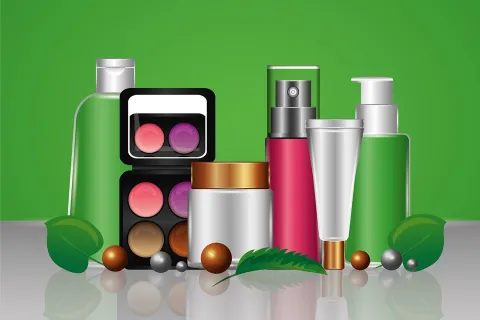
The cosmetics industry in South America offers vast opportunities for global brands seeking market expansion. With a growing consumer base and a rising demand for beauty and personal care products, it’s an attractive region for cosmetics businesses. However, to successfully enter and thrive in South America's diverse market, one essential step is establishing Legal Representation (LR). This ensures compliance with local regulations and smooth navigation of the regulatory landscape, which is crucial for a successful market entry.
In this blog, we'll explore the role of LR and the key regulatory requirements for establishing your cosmetics business in South America.
Why Legal Representation is Essential for Cosmetic Market Entry in South America
South American countries have unique regulatory frameworks governing the cosmetics industry. These regulations are enforced by different Health Authorities (HAs) and agencies. Each country has its specific requirements for product registration, safety, labeling, and marketing. Here’s why having LR is crucial:
Compliance with Local Regulations: LR is often a mandatory requirement in South American countries for cosmetics product registration and marketing. It ensures your brand complies with all local regulations, preventing fines, product recalls, or market access issues.
Streamlined Product Registration: Legal Representatives (LRs) facilitate the submission of product registration dossiers to regulatory authorities, such as ANVISA in Brazil, ANMAT in Argentina, and INVIMA in Colombia. They help ensure that your product meets the necessary standards for safety and efficacy.
Effective Communication with Authorities: An LR acts as a liaison between your company and regulatory agencies. This is particularly important for handling inquiries, inspections, and updates, ensuring a smoother process for market entry.
Facilitating Importation and Distribution: LRs assist in navigating complex customs and import procedures, ensuring your products reach the market without delays or complications.
Key Regulatory Aspects for Legal Representation in South American Countries
Each South American country has its own regulatory requirements for cosmetics, which makes it essential to understand the local laws before establishing LR. Here are some of the key regulations:
Brazil:
- Regulated by the National Health Surveillance Agency (ANVISA), cosmetics products must comply mainly with Resolution RDC 907/2024 and other specific regulations.
- Foreign companies must appoint a local LR who is responsible for product registration, safety assessments, Cosmetovigilance, and compliance with labeling and packaging requirements.
- Products classified as “personal hygiene, cosmetics, and perfumes” require proper classification, GMP (Good Manufacturing Practices) adherence, and a local representative to handle submissions to ANVISA.
Argentina:
- The National Administration of Drugs, Food, and Medical Technology (ANMAT) regulates cosmetics under "Resolution 155/1998."
- Appointing a local LR is mandatory for product registration, handling of safety data, and managing compliance.
- The representative ensures the product's ingredient list, labeling, and packaging adhere to ANMAT’s guidelines.
Colombia:
- The National Institute for Food and Drug Surveillance (INVIMA) oversees the cosmetics sector.
- Cosmetics require a Notified Sanitary Registration (NSR), and only a local LR can handle this process.
- The LR ensures compliance with INVIMA's requirements for product safety, labeling, and stability testing.
Chile:
- The Public Health Institute (ISP) is responsible for cosmetics regulation.
- A local representative is required for product notification, registration, and managing regulatory compliance.
- Compliance with GMP, labeling in Spanish, and ingredient safety assessments are mandatory.
Best Practices for Establishing Legal Representation
- Choose a Representative with Regulatory Expertise: Select an LR who understands the cosmetics regulations in the target country. Their experience will help you navigate complex regulatory procedures efficiently.
- Ensure Proper Documentation: Work with your LR to prepare accurate and complete documentation for product registration, including safety assessments, ingredient lists, manufacturing processes, and packaging details.
- Stay Informed about Regulatory Changes: Regulations in South America are frequently updated. Ensure your LR keeps you informed about any changes that might affect your compliance status.
- Monitor Import and Customs Procedures: Your LR should be well-versed in customs procedures to ensure that your products enter the market without unnecessary delays or costs.
- Engage in Regular Communication: Maintain open communication with your LR to stay updated on regulatory developments, inspections, or product changes that may affect your market entry strategy.
Challenges of Legal Representation and How to Overcome Them
- Language Barriers: Most regulatory processes and documentation are in Spanish or Portuguese, which can be challenging for foreign companies. Your LR, fluent in the local language, ensures accurate communication with authorities.
- Complex Regulatory Processes: Each South American country has its own unique regulatory framework. A knowledgeable LR will guide you through the complexities, ensuring smooth registration and compliance.
Conclusion
Establishing legal representation is a vital step for cosmetics businesses seeking to enter South American markets. It ensures compliance with diverse regulatory requirements, facilitates product registration, and helps navigate the complex regulatory landscape in countries like Brazil, Argentina, Colombia, and Chile. By working with an experienced legal representative, your cosmetics brand can achieve a successful market entry, minimize risks, and build consumer trust in this dynamic region.
Legal representation isn’t just about meeting regulatory requirements, it's about gaining a strategic advantage in the competitive cosmetics industry of South America. So, take this key step and ensure your products meet the highest standards of safety, quality, and compliance as you expand into this promising market.
Partnering with a regulatory expert like Freyr can help you achieve regulatory compliance.









